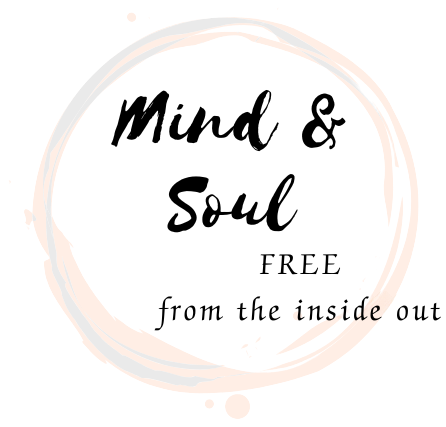The trauma response everyone celebrates: how productivity became my prison after divorce
Jul 11, 2025
Two years after my divorce, I was living what looked like the perfect comeback story.
I was commuting hours each day to London, working relentlessly to re-establish my career, proving to everyone (including myself) that I could not only survive as a single mum, but thrive. My calendar was packed. My achievements were visible. My worth felt measurable.
But I was barely seeing my children. I was burning myself to the ground. And somehow, this race felt impossible to stop.
Everyone celebrated my productivity. I was the poster child for resilience, for getting back on my feet. What no one could see - what I couldn't see - was that my busyness had become my prison.
The productivity trap nobody talks about
We live in a culture that glorifies constant motion. Being busy is a badge of honour. Having a packed schedule signals importance. Working late shows dedication.
But what if some of this celebrated productivity isn't actually about achievement at all? What if it's about avoidance?
After two pregnancies, childbirth, postpartum, divorce, and the overwhelming pressure of finding my identity again, my nervous system was flooded. What I thought was successful divorce recovery, was actually sophisticated avoidance. Instead of processing these massive life changes, I unconsciously chose the socially acceptable option: I got really, really busy!
My productivity wasn't about success. It was about survival.
How trauma responses can masquerade as achievement
When our nervous system is overwhelmed, it looks for ways to feel safe. Sometimes this can show as withdrawal or shutdown. But often, especially for high-achieving individuals, it can show as hyperactivity - constant doing, achieving, proving.
The nervous system reasons: "If I'm constantly productive, I'm valuable. If I'm valuable, I'm safe. If I stop moving, the feelings I’d rather avoid will catch up with me." This hypervigilance - this constant scanning for ways to prove worth and find safety - becomes an exhausting way of being.
This isn't conscious. This is our biology trying to protect us from having to feel the full weight of what we've been through.
The cruel irony? The more we avoid our feelings through busyness, the more our nervous system believes there's something dangerous to avoid. The pattern intensifies.
The moment I recognised the pattern
It nearly took a breakdown to see the truth. Sitting on the train home after another long day, staring at my reflection in the dark window, I finally asked myself: 'What am I running from?’
The answer was: everything! The grief of my marriage ending. The terror of being solely responsible for two small lives. The shame of feeling like I'd failed. The overwhelming uncertainty about who I was, beyond being someone's wife.
Once I started recognising this pattern in myself, I began seeing it everywhere, my practice included. High-achievers who couldn't sit still. Parents who scheduled every moment of their day. Professionals who measured their worth by their output.
Their productivity wasn't the problem - it was the solution their nervous system had found to avoid feeling pain.
The three signs your productivity might be trauma response
-
You feel guilty or anxious when you're not "doing something"
This can show as an inability to relax without feeling like you're wasting time. Rest feels selfish or lazy. Even leisure activities need to be "productive" - educational podcasts instead of music, fitness instead of just walking for pleasure.
Your nervous system has learned that stillness equals danger, that your value depends on constant output.
-
You schedule every minute to avoid being alone with your thoughts
This can show as back-to-back meetings, constant social plans, or filling every quiet moment with tasks. The moment there's space in your calendar, you feel uncomfortable.
You might notice that when you finally do have unscheduled time, difficult emotions or memories surface. Your busyness has become a sophisticated avoidance mechanism.
-
Your self-worth is directly tied to your achievements
This can show as feeling worthless on days when you're less productive, measuring your value by how much you accomplish, or feeling like you need to constantly prove yourself through external success.
Your identity has become so enmeshed with doing that you've forgotten how to just be.
The path back to sustainable productivity
Recognising these patterns isn't about stopping all productivity or achievement. It's about understanding what's driving your behaviour and making conscious choices, rather than unconscious reactions.
True productivity comes from a nervous system that feels safe enough to rest, reflect, connect, and respond rather than react. It comes from a deep knowing that your worth isn't contingent on your output.
The journey back to yourself might mean disappointing people who've come to expect your constant availability. It might mean feeling uncomfortable emotions you've been avoiding. It might mean discovering who you are when you're not constantly proving yourself.
But on the other side of that discomfort is a life where your achievements serve you, rather than you serving your need to achieve.
Your nervous system needs permission to rest
If you recognise yourself in these patterns, know that your productivity response made perfect sense when it developed. Your nervous system was trying to keep you safe in the best way it knew how.
But survival strategies that once protected you can become the very things that imprison you. Being able to distinguish between productive choices and productive compulsions is the first step toward freedom.
Your worth isn't measured by your output. Your value doesn't require constant proof. And your nervous system needs permission to discover what life feels like when safety doesn't depend on never stopping.
The most productive thing you could do today, might be nothing at all.
Ready to move from understanding to embodied healing?
The Somatic Release Intensive is a 1-month body-based programme for people who've done the intellectual work and are ready to work at the nervous system level. Learn more about how we work with what your body has been holding. Drop me a line to have a chat or to schedule Session 1:
https://www.mindandsoul.uk/work_with_me
Or if you want to understand more about what somatic release work looks like, start here:
Behind the Scenes Therapy Insights
Get insights that go deeper than social media posts, with exclusive behind-the-scenes observations from my practice:
We hate SPAM. We will never sell your information, for any reason.

